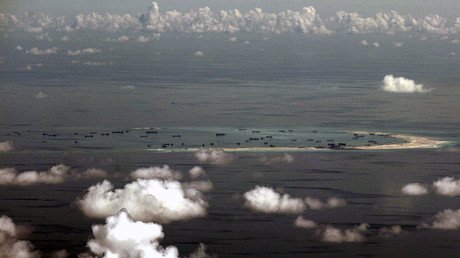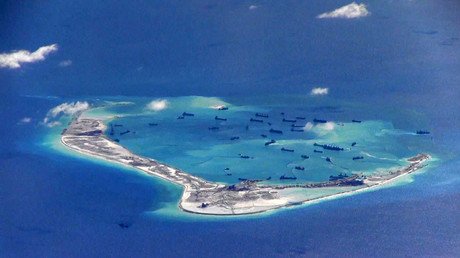‘Following US precedent, China will ignore Hague’s ruling on territorial rights in South China Sea’

China has said the issue of territorial rights in the South China Sea is a matter of its sovereignty, echoing past US sentiment regarding the jurisdiction of The Hague, Cynthia McKinney, former US Congresswoman, Green Party, told RT.
China’s Foreign Ministry criticized a statement made by the US State Department approving Hague arbitration court’s decision on China’s territorial rights in the South China Sea. Washington denied trying to influence the court's decision, while also emphasizing that it's still legally binding for China. The Hague ruled that China has caused irreversible harm to the ecosystem of the Spratly Islands and violated sovereign rights of the Philippines.
RT: The US had similar situation 30 years mounting a legal challenge against the country by Nicaragua. Then American ambassador to the UN called the Hague court ‘a semi-legal, semi-juridical, semi-political body, which nations sometimes accept and sometimes don’t.’ Which one is it ‘legally binding’ or ‘semi-legal’?
Cynthia McKinney: I think the US has set the precedent and so China has said that this is a matter of its sovereignty. Therefore, it is not going to recognize the jurisdiction of The Hague. This has been done before by the US and so the US is going to have to live with the results of its own behavior.
RT: If not The Hague, then which international body can settle this dispute?
CM: One thing that is important is that this was the previous administration of the Philippines. And now we have a new president of the Philippines. Therefore this new president, who seems to be sort of out of the ordinary, populist kind of leader has indicated – well, this was prior to the decision – his willingness to do bilateral agreement with China. This is what China has asked as well – that this be resolved in a bilateral fashion.
RT: IS reasonable enough for everyone eventually to agree on that? Or is China going to give some here?
CM: Well, I am not going to say what China is going to have to do, but I will say that it would be great if all of the countries that are vying for a little piece of the South China Sea were able to come together. China is asserting that ASEAN has said in its China-ASEAN pact that bilateral agreements in South China Sea are what are called for. This could be a domino. We’ve got several countries that have competing claims, and it would be great if China and these countries could bilaterally work this out.
RT: The allegation is that the US is getting involved here beyond the scenes. Are they? Are they going to butt out, so to speak?
CM: Well, you know the US never butts out. They are doing patrols in the South China Sea right now and claiming that they are exercising ‘freedom of navigation’. You’ve got a claim of sovereignty, on one side; and you’ve got a claim of ‘freedom of navigation’ on the other. This is definitely something that if China is able to work this out with its partners bilaterally in the South China Sea – it would be fabulous. Then the US wouldn’t have anything to do with the arrangements of the new president of the Philippines. We’ve got Vietnam that has a claim; Malaysia has a claim; Brunei has a claim. You have got all of these competing claims, and it would great if China could work them out.
The statements, views and opinions expressed in this column are solely those of the author and do not necessarily represent those of RT.















